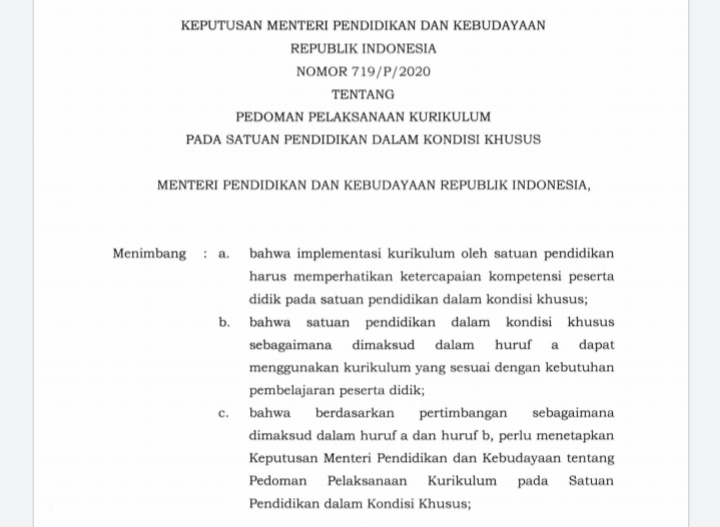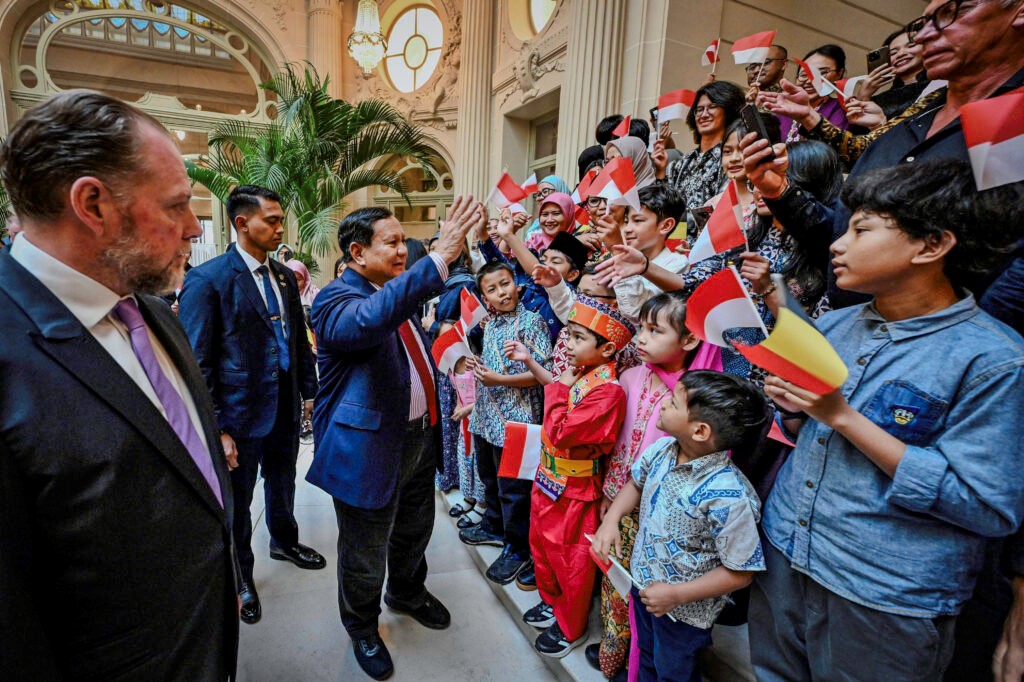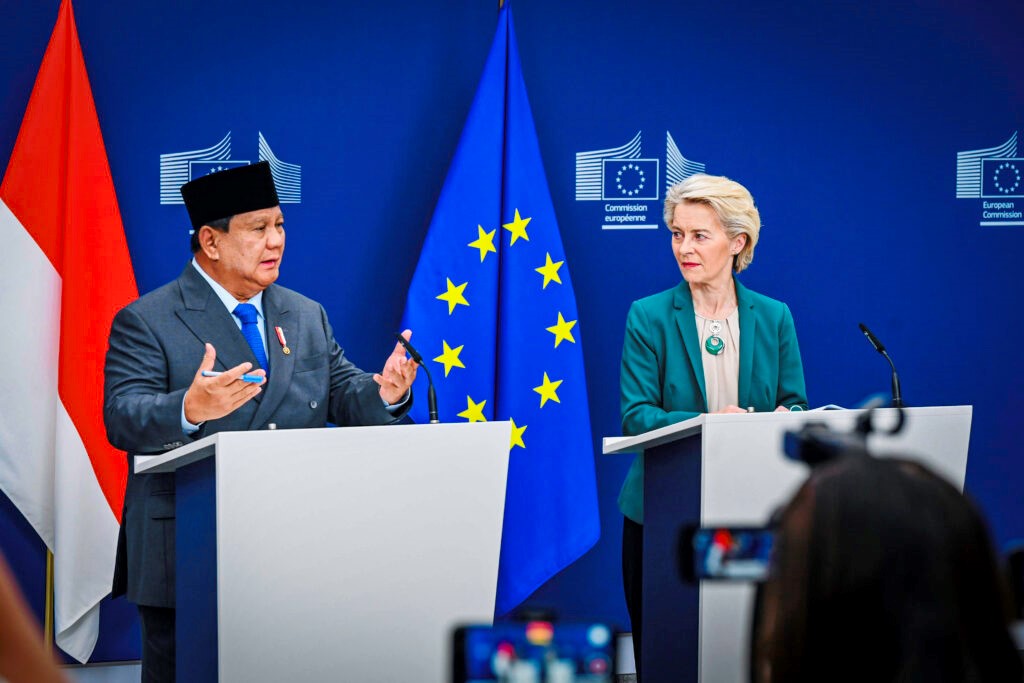Education Ministry Issues ‘Emergency Curriculum’ Under Special Circumstances

Ministerial Decree of Minister of Education and Culture Number 719/P/2020.
Minister of Education and Culture Nadiem Makarim on Tuesday (4/8) issued Ministerial Decree of Minister of Education and Culture Number 719/P/2020 on Guidelines for Curriculum Implementation in Educational Units under Special Circumstances.
The ministerial decree states that educational units can provide a curriculum that is suitable for the needs of their students under special circumstances.
“A proper curriculum in educational units under special circumstances is expected to provide flexibility for schools to choose the best curriculum that suits the learning needs of students,” Nadiem said in a media briefing on Learning Adjustment Policy during the COVID-19 Pandemic through a video conference, in Jakarta, Friday (7/8).
According to him, the implementation of the curriculum under special circumstances aims to provide flexibility for educational units to determine the curriculum according to the learning needs of students.
Educational units under special circumstances in implementing learning programs can choose one of the three curriculum options offered, namely 1) continuing to refer to the National Curriculum; 2) using the emergency curriculum; or 3) simplifying the curriculum independently.
“All levels of education under special circumstances can choose from the three curriculum options,” Nadiem said.
The emergency curriculum (under special circumstances) designed by Ministry of Education and Culture, the Minster said, is a simplification of the national curriculum. In the curriculum, any basic competency for each subject will be reduced so that teachers and students can focus on essential competency and prerequisite competency for continuing learning at the next level of education.
Ministry of Education and Culture will also provide learning modules for early childhood education school (PAUD) and elementary schools (SD) which are expected to help the learning process from home, including activity-based learning descriptions for teachers, parents, and students.
“The curriculum that will be chosen may not burden the students with demands to complete all curriculum achievements for grade promotion and graduation, and curriculum implementation will be valid until the end of the school year,” the Minister said.
The PAUD learning module will be worked on the principle of “Playing is Learning”. The learning process occurs when children play and carry out daily activities, while the learning module for primary education level will cover easy learning plans for both parents and guardians.
“The module is expected to ease teachers in facilitating and monitoring students learning at home and help parents get tips and strategies in assisting children to learn from home,” he added.
In the meantime, in order to help affected students and potentially falling further behind in their education, Minister of Education and Culture also urged teachers to carry out a diagnostic assessment. The assessment will be carried out in all classes gradually to identify students’ cognitive and non-cognitive conditions as a result of distance learning.
The non-cognitive assessment is aimed at measuring the psychological aspects and emotional condition of students, including the students’ psychological and social-emotional, the students’ excitement while studying from home and the students’ family conditions.
Cognitive assessment is intended to test students’ learning abilities and outcomes. The result of the assessment will be used as the basis for selecting learning strategies and providing remedial or additional lessons for left-behind students.
The Government has also relaxed regulations for teachers to support successful learning during the COVID-19 pandemic.
“Teachers are no longer required to meet the 24-hour workload face-to-face in one week so that teachers can focus on providing interactive lessons to students without the need to pursue hours,” Nadiem said.
On that occasion, Nadiem also expressed hope that the cooperation of all parties can continue to carry out. Parents are also expected to actively participate in both teaching and learning activities at home, teachers are expected to improve their capacity to carry out interactive learning, and schools are expected to facilitate teaching and learning activities with the most appropriate methods.
“The cooperation from all parties is needed to make learning programs successful during the COVID-19 pandemic,” Nadiem concluded. (Biro Kerja Sama dan Humas Kemendikbud/EN)
Translated by: Syarifah Aisyah
Reviewed by: M. Ersan Pamungkas








